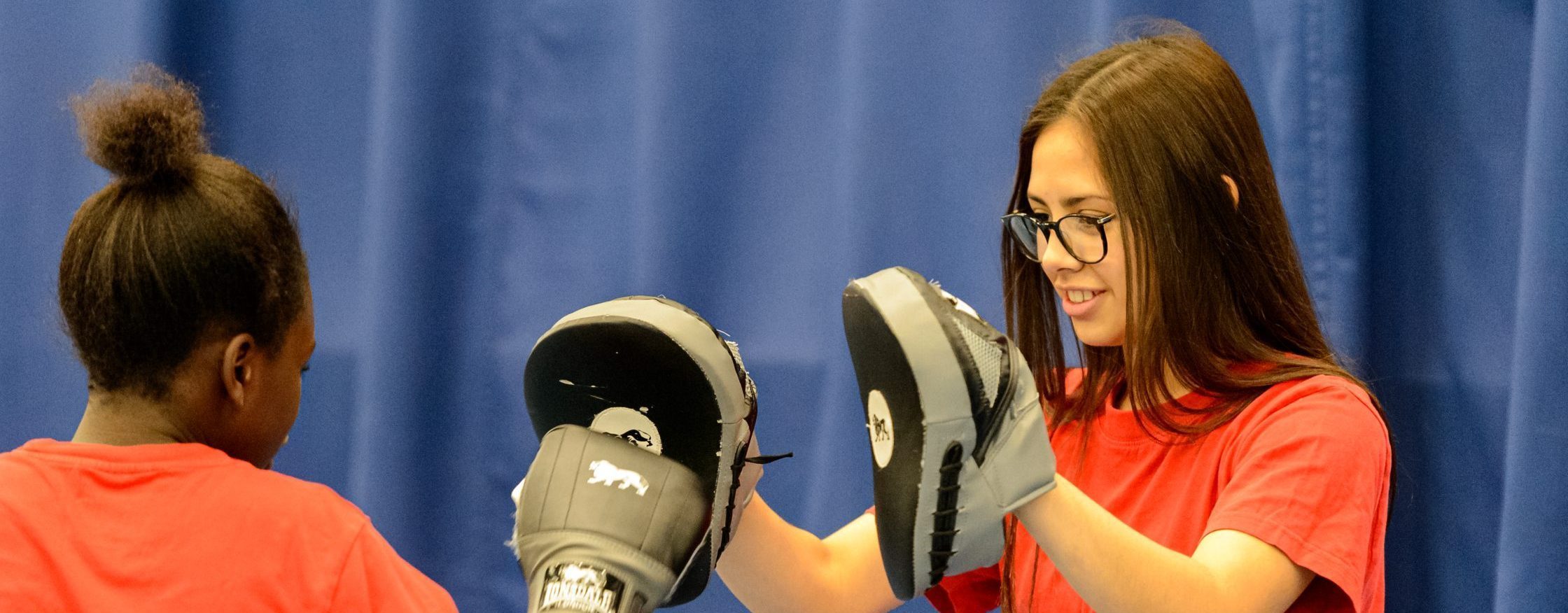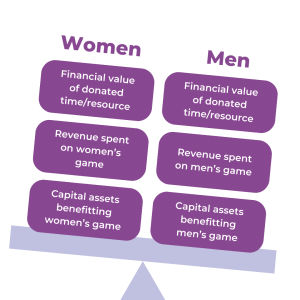
Partnerships and Consultancy
Partnerships are vital to the work we do. We work with organisations that want to help make a difference and enable more women and girls to enjoy the benefits of sport throughout their lives.

Gender budgeting is a way to achieve fair funding and equality for women and men by focusing on how public money is spent by sporting bodies.
We know the allocation of money and other resources in sport is not fair. Whether we talk about money, time, profile or technical expertise, men’s sport has the lion’s share.
Denying the existence of this inequality only serves to further it. We must understand the scale of the problem and then we must fix it. This is what gender budgeting will help to do.

At Women in Sport, we know that sport transforms lives: it empowers individuals and communities, it brings together whole nations, and it is critical to our mental and physical health and wellbeing. Yet it is still a domain with long-standing biases and deep–rooted gender stereotypes. Unfair funding is one part of this and it is holding girls and women back from the benefits and joy of sport.
In the 2021-22 financial year, the Department for Culture, Media and Sport spent over £1.1billion on sport in England. And yet the money spent on sport in the UK is clearly not delivering for women and girls. We have to question how much of it is really being spent on them at all.

Gender budgeting is a two-step process:
Gender impact reporting is the process to understand the current allocation of resources. It allows sporting organisations to collect data on how much women and girls are really benefitting from the money they’re spending.
Just like environmental impact and gender pay gap reporting, gender impact reporting will shine a light on the effects that budgeting decisions have on girls and women in sport. Gender impact reporting is about considering all aspects of a sport that are affected by financial decisions; things like salary and training costs for staff, access to facilities, and coaching time available to men and women. By analysing how the full range of resources are being spent across the breadth of a sport we will start to reveal the true picture for women and girls.
At Women in Sport, we are calling for The UK Government to introduce a requirement for all organisations involved in the delivery of sport and physical activity and in receipt of UK Government funding to implement gender impact reporting.
 Gender budgeting involves analysing the results of gender impact reporting and adjusting budgeting decisions and other resources so that girls and women are benefitting equally with boys and men.
Gender budgeting involves analysing the results of gender impact reporting and adjusting budgeting decisions and other resources so that girls and women are benefitting equally with boys and men.
This does not necessarily mean simply adjusting budgets to ensure a 50-50 spend on men and women. Gender budgeting means adjusting resources across an organisation to ensure that women and girls are benefitting equally and ensuring that girls’ and women’s voices are at the heart of deciding what ‘benefiting equally’ means for their sport. For many sports, this will mean that women and girls need more investment than men and boys, to level the playing field.
Gender budgeting doesn’t necessarily mean spending more overall. Gender budgeting is an honest assessment of the money spent on sport and reallocating some of this money, where necessary, to support women and girls.

Partnerships are vital to the work we do. We work with organisations that want to help make a difference and enable more women and girls to enjoy the benefits of sport throughout their lives.

We’re proud of the work we do and we’re proud of the partners we work with, see a selection of case studies featuring recent work and partnerships here.